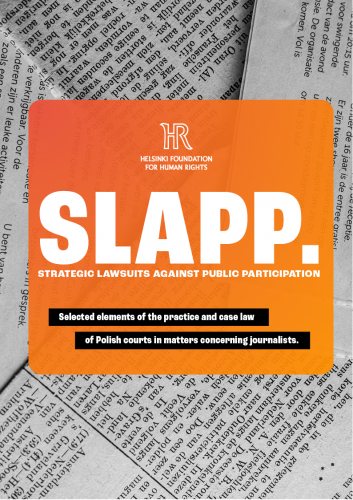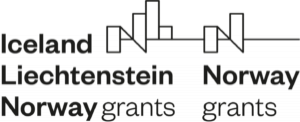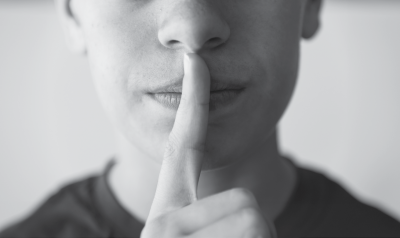The Helsinki Foundation for Human Rights report, 'SLAPP. Strategic Lawsuits Against Public Debate,' highlights the urgent need for practical legal defense tools against SLAPP cases and the immediate implementation of the Anti-SLAPP Directive. It emphasizes extending protections to cover domestic cases, both civil and criminal, as the most crucial steps forward. The report also examines the current practice and jurisprudence of Polish courts in cases involving journalists.
As part of the project 'Strengthening the Protection of Media Freedom - Monitoring and Education,' funded by a grant from the Active Citizens - National Fund program, financed by Norwegian Funds, a team of lawyers from the Helsinki Foundation analyzed specific legal provisions used to initiate SLAPPs and the laws available to help victims resolve such cases quickly. Additionally, judicial practices were examined. The report also outlines international efforts to combat SLAPPs, including the Anti-SLAPP Directive and standards from the European Court of Human Rights case law.
SLAPPs (Strategic Lawsuits Against Public Participation) are legal actions designed to suppress public debate, often exploiting power imbalances, such as financial or social advantages of the initiator. These suits are frequently used by corporations, businessmen, politicians, or state institutions in Poland against journalists and activists.
In civil law, provisions like article 23, 24 and 448 of the Civil Code are abused for SLAPP purposes. However, mechanisms exist to counteract SLAPPs, such as challenging manifestly unfounded lawsuits or procedural abuse. Similarly, criminal law tools like Article 212 of the Criminal Code are often misused against the media, though there are mechanisms to dismiss SLAPPs, such as showing a lack of criminal elements or social harm. In some cases, both civil and criminal law are used against the same individuals.
Zuzanna Nowicka, a lawyer at the Foundation, emphasizes:
"Experts in legal science and practice indicate that Polish civil and criminal law already includes tools that could be used to counter SLAPPs. We studied court practice to determine whether these tools are actually being used. The conclusion is clear—effective implementation of the European Anti-SLAPP Directive is crucial for protecting public debate."
The analysis presented in the report shows a trend where courts often avoid using the available mechanisms that could enable the swift dismissal of SLAPP cases. However, there are positive examples where courts recognize the importance of protecting critical voices in public debate and apply standards developed by the European Court of Human Rights.
Konrad Siemaszko, coordinator of the HFHR Freedom of Expression Program, notes:
"The SLAPP cases cited in the report ended favorably for the defendants, but often took years, despite clear evidence that journalists had acted diligently in defending the public interest. Such proceedings take a significant toll—draining time and imposing psychological and financial burdens on the accused."
The report stresses that the mechanisms proposed by the directive can effectively help combat SLAPPs in Poland, particularly through the early dismissal of these cases. It is crucial that the implementation of the directive, for which Poland has two years, considers domestic circumstances and extends protection beyond international cases. Additionally, similar standards should be introduced into criminal law.
Paulina Milewska, a senior expert at the Foundation, states:
"In recent years, Poland has been one of the European countries most affected by SLAPPs, with cases initiated by business figures, ruling politicians, public television, and state-owned companies. Implementing the directive while extending its standards to criminal law is a vital opportunity for our democracy."
The publication was prepared as part of the project "Strengthening the Protection of Media Freedom - Monitoring and Education," funded by a grant from the Active Citizens - National Fund program, financed by Norwegian Funds.




